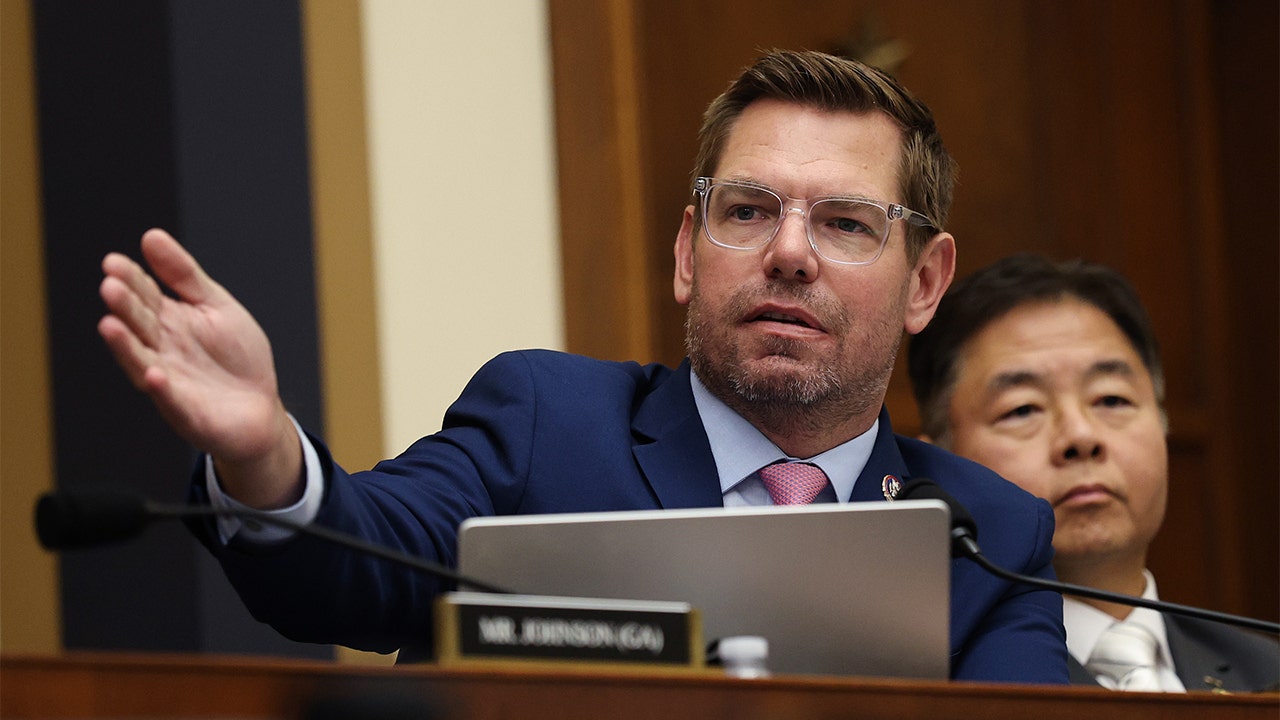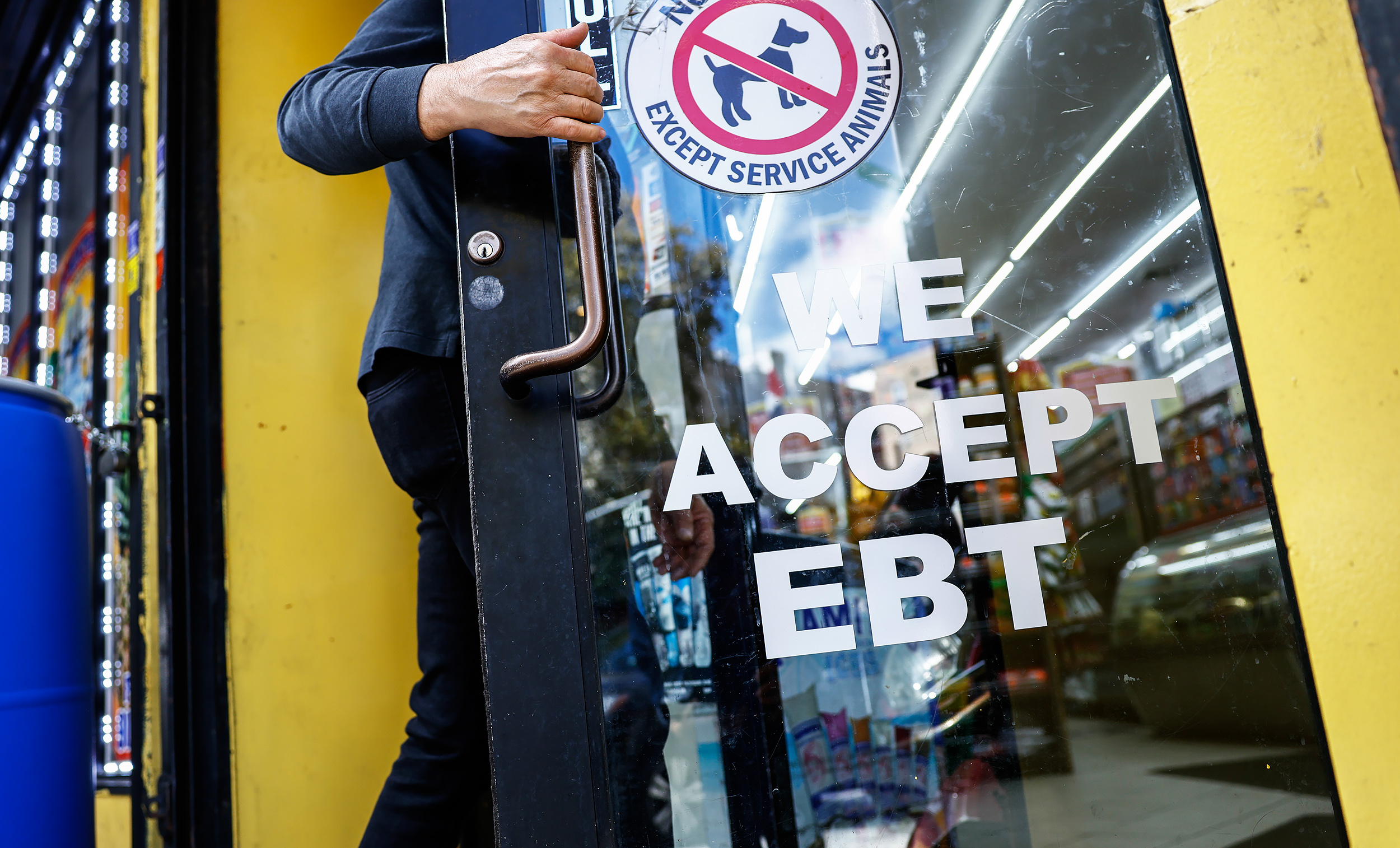Fake news MSNBC
Not “fake news” it’s all real news. Trump’s attempt to rewrite history.
Anyone that watched the events on January 6th knows exactly what happened that day and Trump’s culpability.
Follow along with the video below to see how to install our site as a web app on your home screen.
Note: This feature may not be available in some browsers.
Fake news MSNBC
“Rewriting history” - I learned those buzz words from MSNBC. One of the more recent battle cries.
Not “fake news” it’s all real news. Trump’s attempt to rewrite history.
Anyone that watched the events on January 6th knows exactly what happened that day and Trump’s culpability.
I think you learned most of your buzzwords from Foxnews.“Rewriting history” - I learned those buzz words from MSNBC. One of the more recent battle cries.
More like setting the record straight.

I feel the way you do. Punish for successLike I often say, once you live in Europe, you realize that America's tax rates and programs are pikers compared to Europe. They are the Jedi Masters for plundering money through taxes.
This one is priceless, nothing like penalizing folks who have lived well below their means to put enough money aside for a comfortable retirement and a nice legacy for their children...
Are Wealth Taxes the Best Way to Tax the Ultra Rich?
Plans for a wealth tax, which is dividing France, have gotten popular around the world as inequality has widened and government debt has risen.
There have been calls to tax the rich ever since there have been taxes. One idea, though, arouses particularly fevered reactions: A tax on wealth, not just paychecks.
A clash over such a plan is now dividing France, where there was a raucous debate in Parliament on Friday over proposals for a wealth tax. But the approach has been roiling politics in the United States and Europe for years as inequality has risen to staggering levels and public debt has busted government budgets.
At the Labour Party conference in Britain in October, delegates called for a wealth tax. Surveys have shown three-quarters of Britons back the idea. Debate over the concept has been revived even in countries like Germany and Ireland that had previously repealed their wealth taxes. And the Tax Observatory, a research organization funded by the European Union, has proposed a global minimum wealth tax of 2 percent on the world’s roughly 3,000 billionaires.
To supporters, taxing an individual’s total assets — stocks, real estate, yachts, diamond tiaras, race horses, art, fine wines, private islands and jets — rather than just income is one of the few ways to get people with dynastic wealth to pay their fair share.
It is also necessary, they argue, to dilute the increasing political power of the super rich.
To opponents, wealth taxes are outlandish penalties on innovation and productivity, and discourage investment and cripple growth. They would also be a logistical nightmare to administer, they add. How would government tax collectors go about assessing a family’s valuable collections of Ferraris, Chippendales, Picassos, NFTs and Birken bags every year?
Wealth taxes, though not as common as some other levies, have actually been around for a long time. If you think about it, real estate taxes are one form of a wealth tax that target a particular asset.
In the 17th century, colonists in Massachusetts imposed a wealth tax on financial holdings, land, ships, jewelry and livestock. The first national wealth tax was imposed in the Netherlands in 1892. Colombia introduced one in 1935 as did India in 1957.
Wealth taxes were popular in Europe at times. Twelve countries had versions in 1990, although in many — including Germany, Sweden, Denmark Austria, Finland, Luxembourg — the taxes were later repealed.
Norway, Switzerland and Spain have wealth taxes, according to the Tax Foundation. France, Italy, Belgium and the Netherlands tax certain types of assets, though not overall net wealth.
The reasons for the repeals, as detailed in a 2018 report by the Organization for Economic Cooperation and Development, included the difficulty of administration, the burden on people who owned valuables but had little available cash, and the minimal amounts of revenue raised.
But there has been a revival of support for wealth taxes on the ultra rich in recent years, and much of it can be traced to three French economists — Thomas Piketty, Emmanuel Saez and Gabriel Zucman — who did groundbreaking work starting in the early 2010s documenting the stunning concentration of wealth around the world. Globally, the top 1 percent own roughly 43 percent of the world’s total wealth, according to Oxfam.
In France, one proposal, a tax on households with a net worth of more than 100 million euros ($115.4 million), was aptly known as the Zucman tax. He estimates it would raise up to €20 billion from 1,800 households.
After an acrimonious debate in the National Assembly on Friday, multiple variations of that tax were defeated.
“We are against this tax mania,” Laurent Wauquiez, a lawmaker for France’s conservative Les Republicans party, said of the Zucman tax. “By taxing everything, you’ll have nothing left to tax, and you’ll also discourage entrepreneurs and workers.”
François Ruffin, a left-leaning lawmaker, defended the tax saying it was a “measly 2 percent.” In eight years, “the fortunes of the 500 wealthiest families have doubled by €600 billion, by 100 percent," he added. “We’re taking 2 percent from them, not leaving them 2 percent.”
In the United States, proposals for wealth taxes entered the mainstream during the final year of President Trump’s first term. Senators Elizabeth Warren and Bernie Sanders, both presidential candidates, offered plans based on work by Mr. Saez and Mr. Zucman that they said were aimed at avoiding the shortcomings of failed European wealth taxes.
And after President Joseph R. Biden Jr. took office, Senate Democrats introduced a wealth tax aimed at billionaires, though it did not pass.
In 2020, Bolivia instituted what is arguably the best named wealth tax — Impuesto a las Grandes Fortunas, or Tax on Great Fortunes — which applied to people with net wealth over $4.3 million.
Although concerns about inequality may prompt public support for wealth taxes, economic shocks and tight budgets historically have been the most common causes of their passage, researchers have found.
In the wake of the Covid-19 pandemic, Spain introduced a temporary “solidarity wealth tax” in 2022 on individuals with net assets above €3 million. It was later made permanent.
Slowing growth and intense budget pressures have further ratcheted up interest in wealth taxes.
Last year, the Brazilian government, which held the presidency of the Group of 20 nations, commissioned Mr. Zucman to devise a global plan to tax billionaires. That approach is intended to blunt worries that the super rich will take the money and run to a lower tax haven.
Whatever other objections critics of wealth taxes may have, the fear that it and other presumed financial disincentives would disrupt the economy are often overblown, Esther Duflo and Abhijit Banerjee, Nobel Prize winners in economics, have argued.
Professional athletes don’t reduce their efforts when there are salary caps. Increasing top tax rates tends to prompt more tax evasion, they said, but research shows they don’t cause the rich to work less.
In France, after the tax proposals were defeated on Friday, Mr. Zucman appeared on television and said: “I am not disappointed, because it will eventually happen.”
“There’s a huge demand by the public for a tax on billionaires,” he added. “All battles of this nature take time to win.”
Nope. MSNBC.I think you learned most of your buzzwords from Foxnews.
“More like setting the record straight???”
Hahaha, that’s a joke.
Oh, and you’re a constitutional attorney are you?Nope. MSNBC.
One of my favorites -“We are in the midst of a Constitutional crisis!!!!”
The left has no comprehension of the Constitution. How can they say that there is a crisis of they can’t understand the document???



Federal judge orders USDA to fully fund food stamp program
The action comes two days after states sued the federal agency that administers SNAP benefits. Funds were set to stop flowing Saturday.www.msnbc.com
This should get interesting………. Will Trump oppose feeding his base??
I’ve narrowed you down to this guy with Wader.
Trump shows off Lincoln Bathroom renovated entirely in marble
Trump said the previous look was "totally inappropriate for the Lincoln Era."www.aol.com
Looks like one of those Bathfitters bathrooms that they do in one day.
Best friends 4EVA Same ideology.I’ve narrowed you down to this guy with Wader.View attachment 107908
